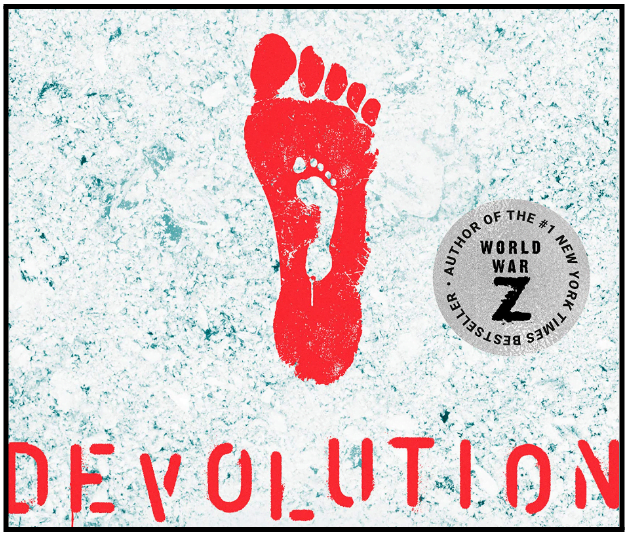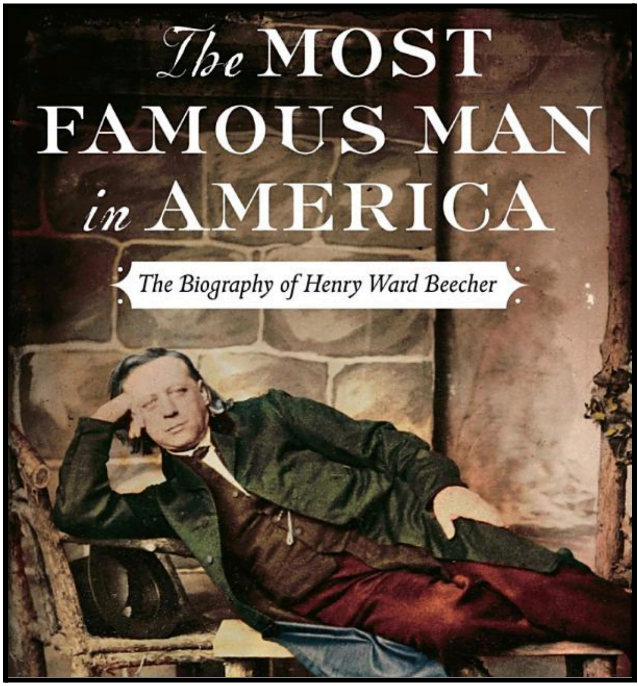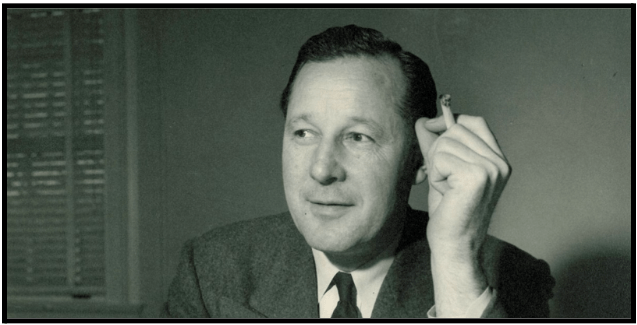Talking Big Ideas.
“Books are the quietest and most constant of friends.”
~ Charles Eliot
Here are the best books I read this year. A blend of fiction and non-fiction. I’m including a few essays and videos as well. The topics range from biography to business to Bigfoot. Also psychology, philosophy, and fantasy – and a little science, health, and humor.

Chatter by Ethan Kross. I loved this book. I considered making it my favorite non-fiction of the year. Kross is one of the world’s leading experts on how we talk to ourselves and how we can improve these internal conversations. An excellent blend of science and specific tactics. It’s clear and quick to read at just over 170 pages (excluding the notes). I referenced Chatter in three newsletter pieces.
A Chemical Hunger. What is causing the obesity epidemic? Everything you think you know may be wrong, or at least things are weirder than they seem. This is a ten-part essay series with lots of graphs and jargon. Balaji made a Twitter thread on the series here.
Collective Illusions by Todd Rose. We all believe things that aren’t true. And many of the things we don’t believe we still pretend to so we can fit in. How many of our cherished beliefs and societal norms are in fact collective illusions? The answer is surprising.

Devolution by Max Brooks. A firsthand account of the Mount Rainier Massacre. Brooks takes you to a remote eco-village in Washington state that gets cut off from the world after Rainier’s volcano erupts – and then Bigfoot shows up. I was so scared reading this novel at night that I was afraid to get up and go to the bathroom.
The Elements of Eloquence by Mark Forsyth. Elements is one of those books where I kept asking myself, “How did I not learn this stuff earlier?” A fun and enlightening exploration into the ancient principles of prose. Filled with examples from the best English writers in history.
Good Arguments by Bo Seo. A world-champion debater and coach distills his key ideas into simple principles. I highlight one of his methods here. The book is part biography, part guide.
Joan Didion’s Magic Trick by Caitlin Flanagan. A good rule of thumb: If Caitlin Flanagan is the author, it’s worth reading. Joan Didion was a fascinating figure that had a big impact on the world. Flanagan brings her to life in this cover story for The Atlantic.

The Last Human – A Glimpse into the Far Future by Kurzgesagt. They make the best videos on the planet. The Last Human explains how we are likely at the very beginning of human history.
Lifespan: Why We Age – and Why We Don’t Have To by David Sinclair. Sinclair is one of the world’s top experts on genetics and runs a health lab at Harvard Medical School. He believes aging is a disease that we can slow down, stop, and even reverse. There’s an 8-episode podcast version of the book – I enjoyed it so much I listened to the whole thing twice.
Making Numbers Count by Chip Heath and Karla Starr. Chip Heath has built up enough cred that I order his books as soon as they’re announced. Karla Starr is an award-winning science writer. If you ever have to use numbers in any way – for an essay, report, speech, or conversation – this book should be on your shelf. Here’s my distillation of their main ideas.
The Manual: A Philosopher’s Guide to Life by Epictetus. The Manual is a short collection of timeless Stoic wisdom from one of history’s best philosophers. Epictetus was born a slave two millennia ago and became a pivotal teacher to the future emperor of Rome and countless others through the ages.

The Most Famous Man in America by Debby Applegate. She won the Pulitzer Prize for this masterpiece on the life and times of the orator Henry Beecher. Every page is insightful with quotable passages. The book is filled with bizarre and fantastical stories. If you’re looking for a quality biography or history book, this is it.
Never Let Me Go by Kazuo Ishiguro. His writing is unique and hard to describe. The plot is slow and disturbing yet I felt a nostalgic draw to the characters and was compelled to continue reading. I kept thinking about this novel well after I finished.
The Onion’s Brief to the Supreme Court. I have wonderful childhood memories of our family gathering on Christmas Eve at my cousins’ house in Parma, Ohio. Now their city is at the center of a federal lawsuit brought by the Institute for Justice. Watch the case launch video and be sure to read The Onion’s brief. It’s a solid and funny defense of free speech.
The Paradox of Fermi’s Paradox by Christopher Mellon. The author is a decorated intelligence officer and respected scientist. I got hooked by his essay and read it on my phone in one sitting as I procrastinated writing a newsletter piece. Fermi’s Paradox asks, “where are all the aliens?” Mellon answers: they’re already here. He makes a compelling case.

Siddhartha by Nobel Laureate Hermann Hesse. One of my all-time favorite novels. A meditation on self-discovery, values, and how to live well. Like Zen & the Art of Motorcycle Maintenance, it’s a philosophical cult classic especially popular among young people. And like Animal Farm, it only gets better as you age.
Speak Like Churchill, Stand Like Lincoln by James Humes. This little book is filled with earned wisdom. Humes was a speechwriter to several presidents and a student of history. I turn to him often for guidance.
The Stoic Challenge by William Irvine. One of the nation’s leading experts on the philosopher Seneca, Irvine blends ancient principles with modern science in a short readable guide. And he offers clear instructions on how to apply everything to daily life. I highlight some of his key insights in Genesha’s Gifts.

Stubborn Attachments by Tyler Cowen. Tyler brings to life the importance of economic growth while explaining why he’s “2/3 utilitarian” and makes space for “common sense morality.” It feels prescient in light of the FTX collapse. Stubborn Attachments is published by Stripe Press so the quality of the cover and paper is outstanding – a fitting complement to the thought-provoking content.
The Surprising Secret of Synchronization by Veritasium. Public speakers need to explain their ideas in a clear and compelling way. Few do it better than Veritasium. If you enjoy science you’ll love this video connecting entropy and spontaneous order to synchronization. And even if you’re not big on science, watch Veritasium anyway to see a master communicator in action. (Related: Scientists discover a new way to measure time.)
Time Trap by DUST, a rapidly growing YouTube channel that offers excellent sci-fi and fantasy shorts. Many of their films explore technology and the nature of existence. Others, like this one, are light-hearted and funny.
What We Owe the Future by William MacAskill. Tyler Cowen says MacAskill is one of the most influential philosophers alive. He’s a professor at the University of Oxford and a founding father of Effective Altruism – the philosophy that scam artist Sam Bankman-Fried was obsessed with. Few books from 2022 are as loved and hated as this one. Either way, it’s worth reading.

What Happens After the Universe Ends? by PBS Spacetime. The Nobel laureate Roger Penrose has a truly brain melting idea about what happens at the end of the universe. It’s called Conformal Cyclic Cosmology. This video is the best explanation I’ve found. (Related: The Last Question by Isaac Asimov.)
Write Useful Books by Rob Fitzpatrick. If you have any interest in writing a non-fiction book, add this to your bookshelf. Fitzpatrick has written several books that have “gone viral” by word of mouth. In Write Useful Books he explains in detail how to do it. There’s a related online author community here.
Why We Sleep by Matt Walker, director of the UC Berkeley Sleep Lab. Walker breaks down the science and health of sleep. He convinces you to make it a priority and gives lots of practical advice. Like Lifespan, there’s a popular podcast version of the book.
You are Not Where You Think You Are by Kurzgesagt. Where are you right now? The answer Kurzgesagt gives is wild and worth the ride. I’ve watched this several times since it was released over the summer. It’s so good!
My Favorites from 2022

Video: Spinoza: A Complete Guide to Life. How can humans truly liberate themselves: politically, socially, emotionally, mentally? How do we free ourselves from coercion as well as collective illusions and chatter? Spinoza shows us the way. He’s among my favorite philosophers, and as Bertrand Russell said, “the noblest and most lovable” as well. This documentary is a good glimpse into Spinoza’s world.
Essay: The Gossip Trap by Erik Hoel. Hoel begins by reviewing the blockbuster history book The Dawn of Everything and then attempts to answer The Sapient Paradox: why did it take so long for civilization to develop? Hoel’s response sticks with you. It’s one of those things you can’t unsee. The Gossip Trap won the coveted Astral Codex Ten book review contest. Hoel’s three–part series on cultivating genius is also excellent. Subscribe to his substack here.
Fiction: Project Hail Mary by Andy Weir. Storytelling at its best. Maryrose read Project Hail Mary in a day. I highlighted it in our newsletter piece on the power of simulation. This week we are driving from Durango to Ohio for Christmas – and listening to the audio version of Project Hail Mary.
Non-Fiction: The Status Game by Will Storr. I’m willing to say that Storr is a modern Carl Sagan. He brings science to life with superb writing that mesmerizes. The Status Game explains and changes the way you see our species. I cannot recommend it enough. I quote Storr in several newsletter pieces.
The author Dan Finklestein said: “I haven’t finished reading The Status Game because I’ve only read it once. There’s so much in this dazzling book I’ll be revisiting it over and over again.”
I feel the same.
***
![]() IDEA
IDEA
Share your favorite books, essays, and videos from the past year.
What’s the best stuff you came across in 2022? Take a moment to highlight a few books, essays, and videos – and share them with me!
***
For more like this:
Cheers,
Bob
If you find this useful, please subscribe to our free weekly newsletter.




